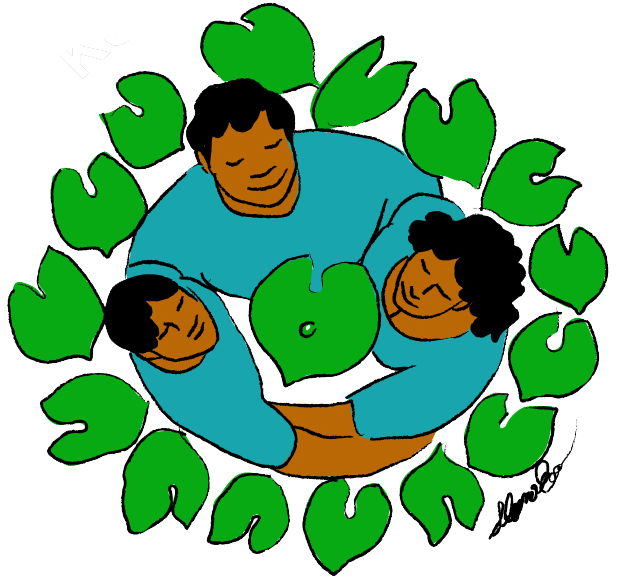Boysie Burdett - Nov. 12, 2020
Uncle Boysie Burdett sits at the wooden table as the rain ricochets off the canvas tent. Stained feet and calloused hands tell the story of a hardworking ʻĀina Warrior. Many call him “hammah” – one who has an exceptional work ethic sprinkled with a generous dose of humility.
It’s impossible to tell by his sturdy frame that he is just shy of 60-years-old. Uncle Boysie affectionately known as Boysie Bee has been working on the land since he was two-years-old when his grandpa would ferry him around to different homes to clean yard.
“My grandpa raised me not my mom and dad,” Uncle Boysie says. “He took me work every time. He took me yard cleaning. We was doing five yards a day.” Uncle Boysie says his Filipino grandpa is the one who shaped him. Grandpa would share traditional stories of Hawaiʻi, and the old-style way of caring for land.
I got my skills from learning about mālama ʻāina through my grandpa. He was old style where he nevah use tools for clean yard,” Uncle Boysie remembers. “Even in Hawaiʻi the kūpuna had limited amount of tools, but they had plenty mana for work.”
In his earlier years, Uncle Boysie’s career carried him to the continent where he did a stint in the army, but he longed for island life and eventually returned home. After much encouragement from his grown children and wife, he entered Honolulu Community College to earn his Associates degree in Hawaiian Studies. While there, he dove deep into his culture helping organizations build hale, sail waʻa, grow food and lāʻau lapaʻau.
But his perpetual love and connection to the land, guided him to Hoʻoulu ʻĀina where he arrives early in the morning and begins to weed before the rest of the crew arrives. “My grandpa also taught me to get to the job early – before you supposed to be there.”
As he removes his shirt and rubber boots, Uncle Boysie jumps into an overgrown ʻauwai and begins to weed the bank of an ʻōlena bed.”
“I always tell my kids, I the guy with no S – no shirts, no suntan lotion, no shoes. That’s why I love this place. I learn everyday over here. They let me be me. This is my puʻuhonua.” Ka’ohua Lucas, photo and story





